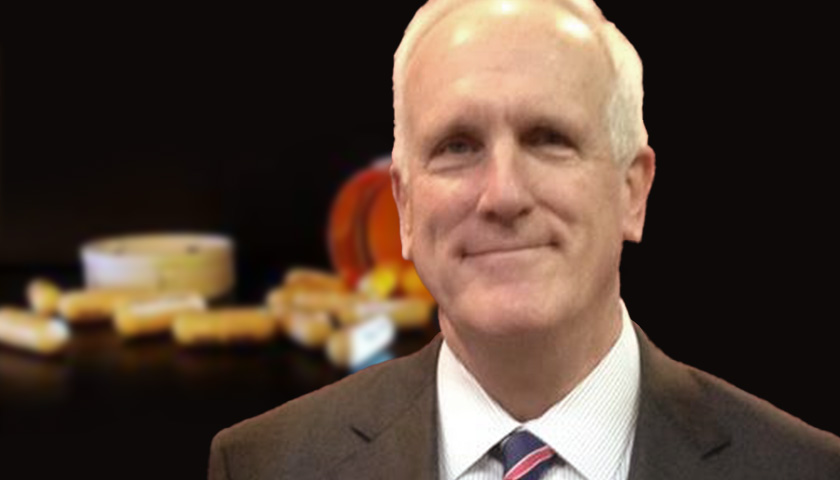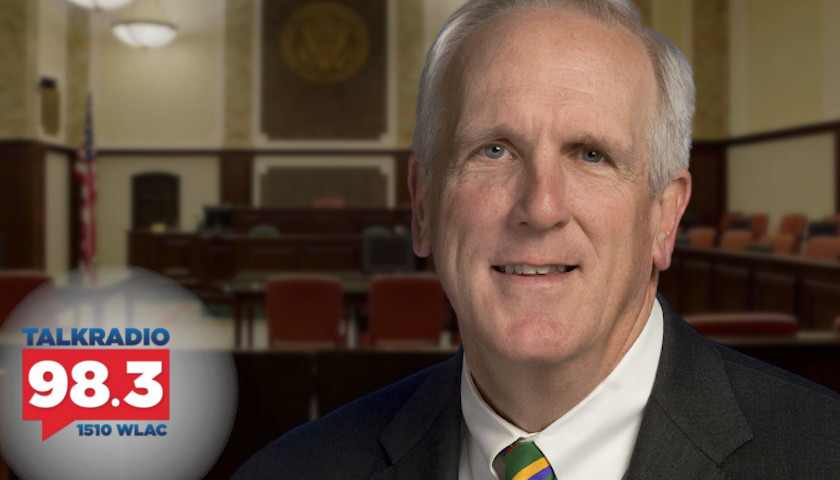By David Tulis / Noogaradio 1240 AM 92.7 FM
CHATTANOOGA, Tenn. — A secret is being revealed by lawyers filing lawsuits on behalf of victims of the yellow school bus crash in Chattanooga that killed six children.
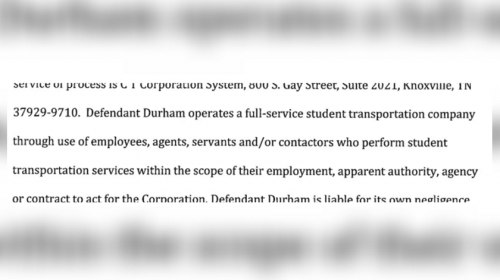
So eager are lawyers to unveil this mystery in courtroom filings that Attorney General Herbert Slatery last week filed suit against the Witherspoon law firm in Dallas on accusations that it hounded bus crash victims’ survivors for work and even threatened one family by saying the funeral home would not bury a dead child unless the grieving parent signed a contract for legal services.
Even in the most boilerplate pages among the civil case courtroom filings (that from the Fried law firm in Atlanta) is this secret sauce revealed: That driving is a commercial act, and that driving is subject to regulation, to state ownership and consent.
OK, OK, you say, so what does that mean?
Let’s pull back, adjust focus and perspective so that these observations are more than just the modern administrative hieroglyph that they appear to be. Move the lamp, alter the light, understand the claim the lawyers are putting forth — these are actually true.
It’s worth knowing.
Newcomers to Tennessee — Hispanic immigrants from Mexico, Honduras, Guatemala — are enjoying the exercise of a constitutional right about which most Americans, taught by TV and public school, don’t know anything. So-called illegals don’t know the details, either, but benefit from their innocency so long as police officers don’t pull them over.
That is the right of a private person to travel on the public right of way apart from the act of driving, operating a motor vehicle or transporting anybody or anything.
The corporate realms of Johnthony Walker
When the troubling Johnthony Walker stepped up into his seat in the yellow Durham School Services bus, he was not going out as a private and free traveler.

He was entering the realm of commerce, carrying passengers for hire in the service of his employer, Durham, who hired him as agent and driver in its relationship by contract with the Hamilton County school system
The third complaint of six lawsuits filed in the early weeks against Mr. Walker and Durham is filed on behalf of a girl named Karrie’un McGuire. The lead name in the action is Shanquatta Byrd, her mother and next friend. The lawyers following it are out of Atlanta, in a group led by Joseph A. Fried.
Defendant Walker was “operating a bus” with the girl as a passenger and “at all times was operating a commercial motor vehicle owned by defendant(s) Durham and NELLC.” It says Mr. Walker was “driving” at an excessive speed. He was negligent and reckless in “violating state commercial vehicle safety regulations and federal motor carrier safety regulations.” The commercial nature of his role is also seen in that he was “operating a commercial motor vehicle as the statutory employee” of the defendants. His bosses were negligent in training, entrusting, retaining and qualifying Mr. Walker and violated “state laws and federal regulations governing motor carriers.”
Language in other filings is similar. Durham is described as “a full-service student transportation company” that did “perform student transportation services” (lawsuit filed by Everett L. Hixson Jr. of Chattanooga.)
In his filings on behalf of schoolboy Jamar Boling, Chattanooga attorney Herbert A. Thornbury places Mr. Walker squarely in commerce, saying the bus “was being operated for the use benefit of Defendant Durham,” a common carrier that “operates a full-service student transportation company through use of employees, agents, servants and/or contractors who perform student transportation services.” For someone uncovering the mystery before us, Mr. Thornbury’s words are not dreary verbiage from Jarndyce v. Jarndyce, but lyrical poetry.
Two great areas of movement — travel, transportation
The complaints, all under 10 pages, highlight the nature of an obscure but important area of political and legal liberty, which has been lost due to neglect and the lack of a proper appellate case to overturn the system.
The lawsuit takes place in the world of commerce. Commerce is the movement of goods and people for profit within a state or across state lines.
This world of commerce is distinct from a separate world occupied by people who travel on the public right-of-way freely and privately.
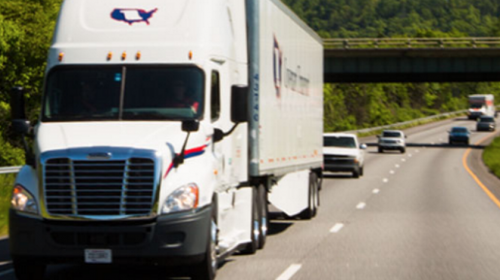
These people are unalloyed travelers and the exercise a constitutionally protected property right of freedom of movement. Using this freedom of movement, immigrants from Mexico, Honduras and Guatemala go from point A to point B. They take friends to the hospital, they go down the street to shop for food, they go to worship on the Lord’s day. They take excursions by car to lakes and vacation places, they bring children to soccer practice, and they bring themselves about at liberty.
They do not operate in commerce and they operate probably in their natural persons, in their natural capacity as human beings protected by constitutional guarantees. They do not ask the state for permission to travel by requesting permission for a driver license. They exercise a liberty which most white people and blacks who are resident in Tennessee and admit themselves U.S. citizens subject to its congress do not exercise.
Your papers, please
Most people, including this writer, by ignorance and mistake and by false statements made in ignorance, have applied to enter into the field of commerce by applying for a driver license from the Department of Safety and Homeland Security. In attaining that license they make other agreements to firm up their reduced status on the road in commerce.
They drive vehicles which are registered with the state, and for which they have the proper papers. They drive vehicles which are also insured in commerce by insurance companies such as State Farm or Geico
The lawsuits make clear that Mr. Walker was in commerce. The language of the lawsuit is clearly at every point commercial period Durham is what is called a common carrier. That means it carries people and goods for hire and holds itself out to the public as a carrier of people and goods under certain circumstances of a certain characteristics. A common carrier is a commercial operator and is subject to regulation because of the favor of the state. A common carrier does not have it right to use the public right away. He can use it only by permission because he is making a profit off of the people for whose benefit and whose expense the roadways are laid, striped and maintained.
Durham is described as a foreign corporation existing under the laws of the state of Delaware. Another defendant in a LLC is also a foreign corporation existing under the laws of the state of Delaware. “Defendant Walker was operating a commercial motor vehicle owned by defendants Durham and Annie LLC and operated on behalf of defendants Durham and NELLC,” the lawsuit says.
Attorney Fried says Mr. Walker violated state commercial vehicle safety regulations and federal regulations and “otherwise failed to operate his vehicle” in a safe and prudent manner.
Under the doctrine of agency or respondeat superior, the actions of the individual and their liability attaches to the two companies. They failed to supervise defendant Walker and negligently qualified him as “a commercial driver.” His job was to “drive the bus.”
“Defendants acts were willful, wanton, and demonstrated that entire want of care which raises the presumption of a conscious indifference to consequences.” The attorneys demand a jury trial and do not specify in Federal Reserve System paper dollar a fixed value for their claim.
Harassment of the innocent
Our interest in this case is in defense of the neglected Liberty of travel. I have reported on the important brief filed by the defendant in State of Tennessee vs. Arthur J. Hirsch. He is appealing his conviction on four counts in December 2015 in Lawrence County.
Three of the counts pertain to his exercise of a constitutionally guaranteed liberty of movement and his private operation of a truck. The state convinced a jury, using jealousy and envy, that Mr. Hirsch was violating commercial laws by traveling without a driver license on a vehicle not registered and without commercial insurance.
Hispanic people often are let go by officers for traveling without any identification or driver license. There is in this practice a subtle recognition of their right to travel by car or truck if they have injured no one and have caused no common law tort by their movement down the highway.
But Americans who are white or black routinely are harassed by officers and courts, and no attorney of whom I’m aware has raised the fundamental issue of the distinction among travelers created by the 1939 commercial driver’s license act of Tennessee, which subjected commercial traffic to regulation. Questions that must be asked is, did that act destroy, wreck, ruin, or deny anyone a constitutional right to travel by car? This question is a yes or no question.
If the state’s answer is yes, then the whole system is unconstitutional and should be found so because it intends to violate a constitutional right. If the state’s answer is no, the state has no business harassing people such as Mr. Hirsch and others who have insisted on the right to travel.
We will watch Mr. Hirsch’s case since he represents an ancient courage, and old boldness to not be bullied by the political and legal establishment overseen by Republicans and Democrats who occupy the legislature, the executive branch, and the state judiciary. He stands almost entirely alone, too poor to afford an attorney, but claiming to stand for ancient liberties cherished by a small but growing body of “free people” in Tennessee.
Who is subject to commercial regulation?
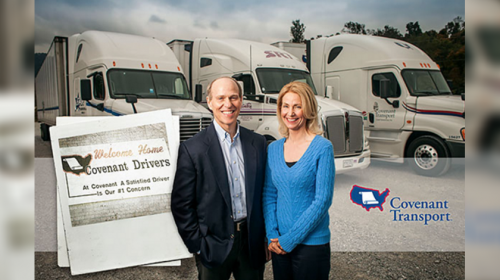
Common and commercial carriers are subject to regulation and taxation for making a profit on the public highways. David Parker, CEO of Covenant Transportation Group, says trucking companies are willing to pay higher taxes if federal interstate highways could be upgraded. Roads suffer huge damage from companies that profit on the use of the road. You and I don’t profit from the roads if we simply use them to travel to work, to church or on errands to Ooltewah, Northgate mall and downtown to eat out at a restaurant.
But trucking companies are common carriers. They are subject to taxation, regulation, registration of their vehicles and subjection to insurance requirements.
David Tulis is editor of Nooganomics.com and covers local economy and free markets in Chattanooga and beyond at Noogaradio 1240 AM 92.7 FM.




